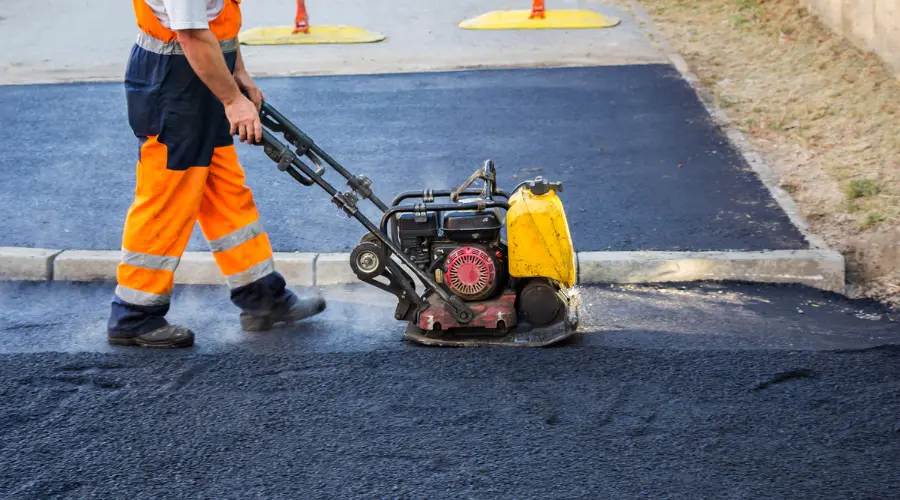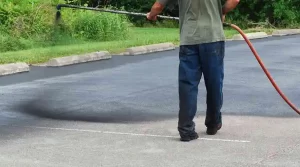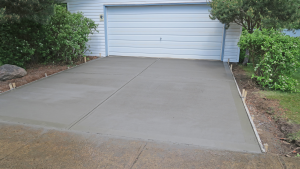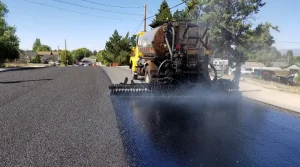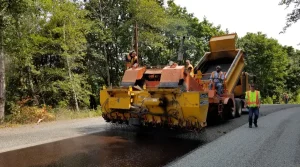Is Your Jersey City Property at Risk from Poor Pavement Work?
Have you ever noticed how some driveways and parking lots in Jersey City look pristine for years while others deteriorate within months? The difference isn’t luck—it’s the result of choosing the right pavement services provider.
In a city where property values have increased by over 40% in the last decade, protecting your pavement investment isn’t just about aesthetics—it’s about preserving your property’s value and functionality. With Jersey City’s challenging climate conditions—freeze-thaw cycles, coastal humidity, and urban pollution—professional pavement installation and maintenance is more critical than ever.
Yet many property owners make costly mistakes when selecting pavement contractors, often swayed by low bids or pushy sales tactics. The result? Premature pavement failures, drainage issues, and expensive repairs that could have been avoided with proper vetting.
This guide provides you with 10 essential questions to ask potential pavement service providers—questions that separate true professionals from corner-cutters. Armed with these insights, you’ll be equipped to make an informed decision that protects your investment and ensures lasting results.
Question #1: Are You Licensed, Insured, and Specifically Experienced in Jersey City?
This three-part question establishes the baseline for professional credibility:
License Verification
What to ask:
- “Can you provide your New Jersey Home Improvement Contractor Registration number?”
- “How long have you been registered to operate in Hudson County?”
- “Does your license cover all the services you’ll be providing for my project?”
Why it matters:
- Unlicensed contractors expose property owners to significant liability
- Valid licensing ensures compliance with state regulations
- Registration status can be verified through the NJ Division of Consumer Affairs
Insurance Documentation
Request proof of: ✓ General liability insurance: Minimum $1 million coverage recommended ✓ Workers’ compensation insurance: Protects you from liability for on-site injuries ✓ Vehicle and equipment insurance: Covers damage from operational accidents
Local Tip: Ask for certificates of insurance that specifically name your property as “additionally insured” for the duration of your project. This provides an extra layer of protection.
Jersey City-Specific Experience
Critical questions:
- “How many similar projects have you completed in Jersey City specifically?”
- “Are you familiar with the local permit requirements for my neighborhood?”
- “What unique challenges have you encountered in Jersey City projects and how did you address them?”
Why local experience matters: Jersey City’s diverse neighborhoods present unique pavement challenges:
- Downtown and waterfront areas often have high water tables
- The Heights has significant elevation and drainage considerations
- Historic districts may have special requirements and restrictions
- Some neighborhoods have combined sewer systems affecting drainage design
Question #2: Can You Provide Detailed References from Similar Jersey City Projects?
Generic references aren’t enough when evaluating pavement contractors:
What to Request
Ask for:
- Recent local references: Projects completed within the past 12-24 months
- Similar project examples: Work that matches your specific needs
- Before and after photos: Visual evidence of their work quality
- Long-term references: Projects completed 3+ years ago to verify durability
- Contact information: Ability to speak directly with previous clients
Key Follow-up Questions for References
When contacting references, ask about:
- Work timeliness: Did the project stay on schedule?
- Budget adherence: Were there unexpected costs?
- Problem solving: How were unexpected challenges handled?
- Communication quality: Was the contractor responsive and clear?
- Durability of results: How has the pavement held up over time?
Red Flags in Reference Responses
Be wary if:
- The contractor hesitates to provide specific references
- References are all family members or seem personally connected
- Projects are all outside Jersey City or in different geographic conditions
- No long-term references are available to vouch for durability
- References cite significant cost overruns or schedule extensions
Question #3: What Specific Pavement Materials Do You Recommend for My Property and Why?
This question reveals the contractor’s technical knowledge and commitment to quality:
Material Specifications Matter
Professional contractors should discuss:
| Material Component | What They Should Explain | Why It Matters |
| Asphalt mix design | Specific type and composition | Different mixes perform differently in our climate |
| Aggregate quality | Source and characteristics | Affects durability and appearance |
| Binder content | Percentage and type | Determines flexibility and water resistance |
| Base materials | Composition and depth | Foundation for long-term stability |
| Specialty additives | Performance enhancers | Can extend pavement life in Jersey City conditions |
Climate-Specific Considerations
Qualified contractors will address how their materials handle:
- Freeze-thaw cycles common in Jersey City winters
- Heavy rainfall and drainage requirements
- UV exposure that accelerates oxidation
- Temperature fluctuations that stress pavement
- Salt exposure near coastal areas or from winter road treatment
Custom Recommendations
Look for contractors who: ✓ Assess your specific site conditions before making recommendations ✓ Explain the trade-offs between different material options ✓ Provide specifications in writing, not just verbal assurances ✓ Mention material warranties or performance guarantees ✓ Can explain why their recommendation is best for your specific property
Question #4: What is Your Complete Installation or Repair Process?
The contractor’s answer reveals their professionalism and attention to detail:
Comprehensive Process Description
A quality pavement contractor should outline:
- Site Evaluation and Planning
- How they assess existing conditions
- Methods for identifying potential problems
- Approach to drainage evaluation
- Tools used for measuring and planning
- Site Preparation
- Steps for removing existing pavement (if applicable)
- Methods for excavation and material removal
- Procedures for addressing soft spots or unstable areas
- Approach to grading and slope creation
- Base Construction
- Materials used for the base layer
- Thickness specifications based on usage
- Compaction methods and verification
- Quality control procedures
- Pavement Installation
- Temperature requirements for materials
- Equipment used for proper spreading
- Compaction techniques and patterns
- Seam management for smooth transitions
- Edge treatment procedures
- Finishing and Clean-up
- Final rolling procedures
- Clean-up process and standards
- Site restoration expectations
- Final inspection process
Time Management Details
Professional contractors will provide:
- Realistic project timeline with specific phases
- Factors that could affect the schedule
- Curing time requirements before usage
- Communication procedures for any delays
Quality Control Measures
Look for mentions of: ✓ Density testing during installation ✓ Temperature monitoring of materials ✓ Thickness verification procedures ✓ Compaction validation methods ✓ Final inspection protocols
Question #5: How Do You Handle Drainage Issues Specific to Jersey City Properties?
Drainage is critical in our region, making this question particularly revealing:
The Jersey City Drainage Challenge
Our local conditions include:
- 47 inches of annual rainfall
- Combined sewer systems in many neighborhoods
- High water table in lowland areas
- Significant runoff from impermeable urban surfaces
- Strict municipal stormwater management requirements
Professional Drainage Approaches
Quality contractors will discuss:
Assessment methods:
- Site grading analysis using professional equipment
- Water flow pattern identification
- Existing drainage capacity evaluation
- Historical water issue investigation
Solution options:
- Proper slope design (minimum 2% for effective drainage)
- Strategic placement of catch basins where needed
- Integration with existing drainage systems
- Permeable pavement options where appropriate
- French drain installation for problem areas
Special considerations:
- Compatibility with municipal stormwater systems
- Environmental compliance requirements
- Adjacent property impact prevention
- Seasonal maintenance recommendations
Red Flags in Drainage Responses
Be concerned if the contractor:
- Dismisses drainage as a minor consideration
- Proposes only surface solutions for serious issues
- Cannot explain how water will flow off your property
- Doesn’t mention integration with existing systems
- Fails to address Jersey City’s specific drainage challenges
Local Insight: Properties in Jersey City’s western neighborhoods often require additional drainage considerations due to the natural topography and less developed municipal systems compared to eastern areas.
Question #6: What Written Guarantees and Warranties Do You Provide?
This question separates truly confident professionals from uncertain providers:
Comprehensive Warranty Components
A quality pavement warranty should include:
| Warranty Element | What to Look For | Red Flags |
| Duration | 1-2 years minimum for workmanship | Verbal-only assurances |
| Coverage scope | Specific defects covered | Vague or limited coverage |
| Exclusions | Reasonable and clearly stated | Excessive exceptions |
| Material warranties | Manufacturer backing | No material guarantees |
| Transferability | Coverage if property sells | Non-transferable terms |
Critical Warranty Questions
Ask these follow-up questions:
- “Is your warranty provided in writing before the project begins?”
- “What specific defects and issues are covered vs. excluded?”
- “What is your process for addressing warranty claims?”
- “How quickly do you respond to warranty issues?”
- “Do you have examples of how you’ve handled warranty claims in the past?”
Jersey City-Specific Considerations
Local warranty factors include:
- Freeze-thaw coverage: Essential given our winter conditions
- Water damage provisions: Important for our rainfall patterns
- Heavy urban traffic considerations: Relevant for many Jersey City properties
- Material failure specifics: Details on how material defects are handled
- Maintenance requirements: What owner responsibilities maintain coverage
Question #7: What Permits and Inspections Are Required for My Project?
This question tests the contractor’s familiarity with local regulations:
Jersey City Permit Knowledge
Professional contractors should be familiar with:
- Construction permits for new pavement installations
- Engineering approvals for projects affecting drainage
- Historic district requirements in designated areas
- Curb cut permits for driveway connections to city streets
- Environmental considerations for projects near sensitive areas
Permit Handling Process
Quality contractors will explain:
- Which specific permits your project requires
- Who is responsible for obtaining each permit
- Typical timeline for permit approvals
- Any inspections required during or after the work
- How permit costs are handled in the bid
Compliance Assurance
Look for contractors who: ✓ Include permit costs in their written estimates ✓ Have established relationships with local inspectors ✓ Understand zone-specific requirements in different neighborhoods ✓ Can navigate historic district guidelines if applicable ✓ Take responsibility for scheduling required inspections
Red Flags in Permit Discussions
Be wary of contractors who:
- Suggest working without required permits
- Expect you to handle all permit processes
- Seem unfamiliar with local Jersey City requirements
- Have had projects shut down by inspectors in the past
- Add significant costs for “unexpected” permit requirements after signing
Question #8: How Is Your Estimate Structured, and What Could Cause the Price to Change?
This question helps prevent unpleasant financial surprises:
Comprehensive Estimate Components
A professional estimate should include:
✓ Detailed scope of work: Exactly what will be done ✓ Material specifications: Types and quantities ✓ Labor costs: Broken down by phase if possible ✓ Equipment charges: What machinery will be used ✓ Timeline projections: Expected start and completion ✓ Payment schedule: When payments are due ✓ Change order process: How modifications are handled
Potential Cost Variables
Legitimate contractors will be transparent about:
- Subsurface discoveries
- Unexpected soil conditions
- Hidden utility issues
- Discovery of prior pavement layers
- Material fluctuations
- Petroleum price impacts on asphalt costs
- Seasonal availability challenges
- Specialty material lead times
- Weather impacts
- Extended rain delays
- Temperature extremes affecting scheduling
- Seasonal considerations
- Scope changes
- Client-requested modifications
- Additional areas added to project
- Upgrades to materials or specifications
Contract Protection Elements
Ask about:
- How price guarantees are documented
- Time limits on the estimate
- Process for approving additional costs
- Maximum percentage of potential increases
- Milestones for payment schedules
Red Flags in Pricing Discussions
Be cautious if the contractor:
- Requires large upfront payments (over 30% is concerning)
- Cannot or will not provide written breakdowns
- Offers dramatically lower prices than competitors
- Uses high-pressure sales tactics to “sign today”
- Has a history of significant cost overruns
Question #9: How Do You Minimize Disruption and Protect My Property During the Project?
This question reveals the contractor’s professionalism and respect for your property:
Project Management Procedures
Quality contractors should describe:
Site protection measures:
- Methods for protecting adjacent landscapes
- Approaches to preventing damage to structures
- Dust control procedures
- Runoff management during work
- Protection of nearby trees and plants
Access and usage planning:
- How resident/tenant access will be maintained
- Parking alternatives during construction
- Pedestrian safety measures
- Delivery accommodation strategies
- Emergency access provisions
Noise and disturbance control:
- Working hour limitations
- Equipment noise management
- Neighborhood notification procedures
- Weekend/holiday work policies
- Communication during disruptive phases
Equipment and Material Management
Professional contractors will explain:
- Where equipment will be stored overnight
- How materials will be secured on site
- Daily clean-up standards and procedures
- Waste material handling and removal
- Site restoration after project completion
Communication Protocols
Look for contractors who provide: ✓ Designated project manager contact information ✓ Regular update schedule and format ✓ Decision-making timeline expectations ✓ After-hours emergency contact procedures ✓ Neighbor communication approach
Question #10: What Maintenance Program Do You Recommend After Completion?
This final question tests the contractor’s long-term commitment to your satisfaction:
Comprehensive Maintenance Planning
Professional contractors will provide:
Initial care instructions:
- Curing time requirements
- Initial usage limitations
- First-year special considerations
- Seasonal protection recommendations
Long-term maintenance schedule:
- Recommended sealcoating timeline
- Crack sealing frequency guidelines
- Professional inspection intervals
- Season-specific maintenance tasks
- Cleaning recommendations and methods
Maintenance Service Options
Quality contractors often offer:
- Scheduled maintenance programs
- Annual inspection services
- Preventative treatment packages
- Documentation for property management records
- Early problem identification visits
Maintenance Education
Look for contractors who explain:
- Signs of normal wear vs. problems
- When to call for professional assessment
- DIY maintenance tasks vs. professional services
- How to protect pavement in extreme weather
- Documentation recommendations for warranty purposes
Value-Added Recommendations
The best contractors also provide: ✓ Seasonal care guides specific to Jersey City’s climate ✓ Snow and ice management recommendations that prevent damage ✓ Cleaning product guidance for different contamination types ✓ Preventative options that extend pavement life ✓ Budget planning assistance for future maintenance costs
Choosing the Right Jersey City Pavement Partner: Making Your Final Decision
After asking these ten critical questions, how do you evaluate the responses to select the best contractor?
Decision-Making Matrix
Consider weighting these factors based on your priorities:
| Factor | Why It Matters | Typical Weight |
| Experience & credentials | Foundation of quality work | 15% |
| References & reputation | Verification of claims | 15% |
| Material quality | Determinant of longevity | 15% |
| Installation process | Execution excellence | 15% |
| Drainage expertise | Critical for performance | 10% |
| Warranty coverage | Long-term protection | 10% |
| Pricing transparency | Financial predictability | 10% |
| Property protection | Respect for your investment | 5% |
| Maintenance support | Long-term performance | 5% |
Red Flag Summary
Avoid contractors who:
- Cannot provide license and insurance documentation
- Lack specific Jersey City project references
- Offer vague material specifications
- Cannot articulate a detailed installation process
- Minimize drainage considerations
- Provide limited or verbal-only warranties
- Seem unfamiliar with local permit requirements
- Require large upfront payments
- Have no clear property protection plan
- Offer no maintenance guidance
Green Light Indicators
Prioritize contractors who demonstrate:
- Established Jersey City presence with verifiable local experience
- Technical knowledge evident in their explanations
- Transparent communication throughout the inquiry process
- Professional documentation of all aspects of the project
- Attention to your specific property needs rather than generic solutions
Take Action: Securing Professional Pavement Services for Your Jersey City Property
Your pavement is a significant investment that impacts your property’s value, functionality, and appearance. In Jersey City’s competitive real estate market and challenging climate conditions, choosing the right pavement services provider is a decision with long-term consequences.
By asking these ten essential questions, you’ve taken the critical first step toward ensuring quality results. The next step is scheduling consultations with several qualified contractors to compare their approaches and proposals.
Ready to find the right pavement services partner for your property?
Contact our team of Jersey City pavement specialists for a comprehensive consultation. Our experts at Jersey City Paving and Concrete understand the unique challenges of urban properties and provide customized solutions that enhance both appearance and durability.
Call (201) 977-4882 now to schedule your free property assessment and receive a detailed service recommendation tailored to your specific situation.

